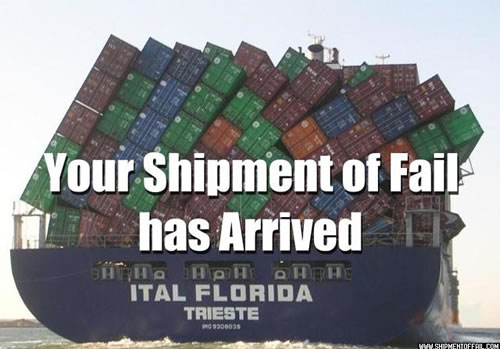Not really surprising at all but it seems big polluting industries have funded reports that show that the EPA regulations would destroy them. Aside from the fact that polluters shouldn’t be allowed to have an industry that harms the environment or the people that rely upon it for food and shelter, these reports have been lambasted as being horribly inaccurate.
Economists from Dartmouth, the University of Wyoming and the University of California at Santa Barbara gave reports from the Manufacturers’ Alliance, IHS Global Insight and Fisher International an Incomplete, D and F respectively.
“These industry groups are attempting to shape vital public health policies with work that wouldn’t pass muster in a college economics class,” said John Walke, senior attorney and director of NRDC’s Clean Air Program. “Industry lobbyists are resorting to shoddy economics and outright deception to block EPA rules that could reduce toxic air pollution from industrial plants and save nearly 5,000 lives a year and prevent thousands of cases of respiratory and heart disease. These lobbyists are going further and opposing more protective national smog standards that could save up to 12,000 lives each year.”
For the full reviews click here (pdf)
Here are excerpts of the reviews from the economists grading these reports:
“Economic Implications of EPA’s Proposed Ozone Standard” – by Manufacturers’ Alliance (MAPI)
Evaluator: Richard B. Howarth, the Pat and John Rosenwald Professor in the Environmental Studies Program at Dartmouth College
Letter Grade — Incomplete
“The MAPI report is fundamentally flawed, resting on an analytical framework that is scientifically unsound and inappropriate for use in policy evaluation.”
“The report fails to apply standard statistical techniques that are taught to students specializing in the fields of statistics and econometrics.”
“The report would warrant a grade of ‘incomplete’ if it were submitted as an undergraduate honors thesis or master’s thesis in an academic program focusing on environmental policy analysis.”
Evaluation of the Economic Impact of Proposed EPA Air Toxics Rule on Industrial, Commercial, and Institutional Boilers and Process Heaters – by IHS Global Insight
Evaluator: Jason F. Shogren, Professor, Department of Economics and Finance, University of Wyoming
Letter Grades — D & F
Application — D
“Lack of a serious accounting of economic behavior — no attempt to account for the behavioral elasticities of demand, a high end cost estimation, one-to-one mapping of upgrade costs to demand reduction, not addressing impacts in non-sector gainers within the economy, no accounting for R&D and new technology innovations and entrepreneurship.”
Transparency — F
“Weak discussion on the basic economic role of responsiveness and substitution possibilities, multiplier justification is unclear, abatement cost assumptions incomplete, unclear, and inadequately justified.”
“Economic Impact of Pending Air Regulations on the US Pulp and Paper Industry,” addressing EPA’s air toxics standards for industrial boilers, by Fisher International
Evaluator -Charles D. Kolstad, PhD, Professor and Chair, Department of Economics,
University of California at Santa Barbara
Letter Grade — F
“If I were grading this, I would give it an F. The economics is all wrong (lack of an incidence analysis or acknowledgement of its importance; failure to draw on the relevant literature), which of course would be my main concern.”
“But the paper has some redeeming features — the English grammar is decent and typically better than I see on a poor paper. Furthermore, I would want to encourage the student to work harder on the next assignment.”
I guess I am not surprised that big polluting industries would come out with reports that show that the EPA regulations are going to “destroy everything!!!! AHHH!!!” but I would have thought they would have at least tried a little harder. I guess there is no good way to show that 1 + 1 = 3.
